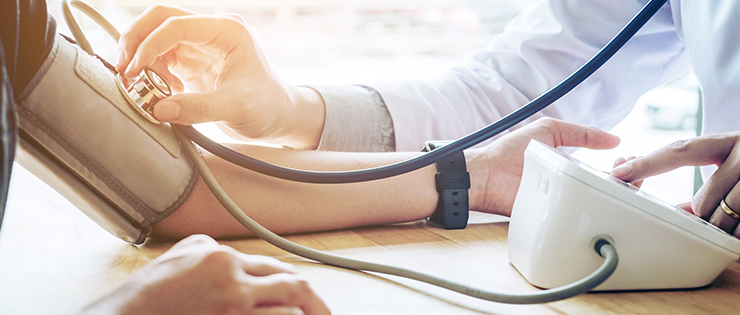
There is a lot of talk about blood pressure but in reality, not everyone knows what exactly it is. Especially when it comes to what’s a good blood pressure, what’s too high or what’s too low. Having your blood pressure checked is an important health check for everyone but what does it mean and why is it so important?
What is blood pressure?
Blood pressure is a measure of the pressure inside your blood vessels. It’s a product of a number of factors including how fast and strong your heart pumps, the volume of your blood and how tight (small) or relaxed your blood vessels are.
Your body has lots of ways to, in a way, measure its own blood pressure and maintain the blood pressure within a range that is healthy for your body. Too high can damage your blood vessels and organs and too low may mean not enough blood gets to your organs. Your blood pressure changes throughout the day and sometimes minute to minute, regulated by nerves and hormones that you’re not even aware of.
You may see the two numbers in a blood pressure reading such as 120/80, which we would say as “120 over 80”. The top number is called systolic blood pressure which is when your heart is contracting and the lower number diastolic blood pressure. This is when your heart is relaxing and filling, ready to beat again.
What is high blood pressure?
High blood pressure is called hypertension and in adults, is generally defined as when the systolic (top) number is higher than 130 or the diastolic (bottom) number is higher than 80. We generally like to get more than one reading that is high as sometimes, the stress of having your blood pressure checked is enough to make it a little higher than it normally would be.
In around 95% of people with high blood pressure, there’s no known cause. We call this essential hypertension. In the remainder of people, there is an underlying cause such as medications, drugs, kidney disease or hormone problems. High blood pressure doesn’t have any symptoms so the only way to know we have it is to get it checked. Your GP, local nurse or pharmacist can check this and send you along to your GP if it’s a bit high.
What is the problem with high blood pressure?
High blood pressure can lead to a whole host of complications. It can make the heart get dangerously large, cause heart failure and heart attacks, cause stroke or bleeding on the brain or cause kidney disease. The higher the blood pressure, the more likely these problems become.
How do we treat high blood pressure?
Once the diagnosis is established, there are two approaches to treatment. The first is non-medication and includes restricting salt intake, losing weight, exercise and diets such as the DASH (Dietary Approaches to Stop Hypertension) diet. Losing as little as 1kg can drop the blood pressure by 2, and every little bit helps.
In conjunction, there are a lot of tablets on the market that are excellent at treating high blood pressure. When we treat high blood pressure, we can dramatically reduce the risk of complications like heart disease and stroke so if it’s needed, it’s an important tablet to take.
Preventing and treating high blood pressure is an important way of staying healthy for the rest of your life. Leading a healthy lifestyle is the best way to stave off this illness which can make you very sick. Be sure to get your blood pressure checked and know what you need to do.